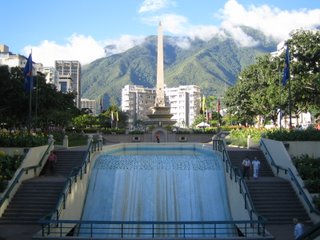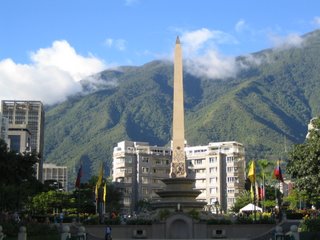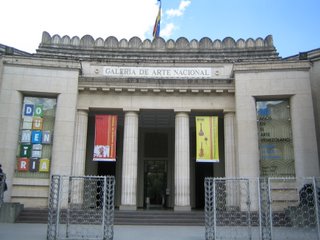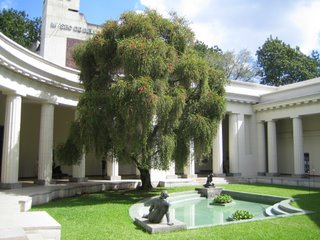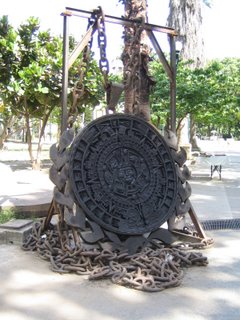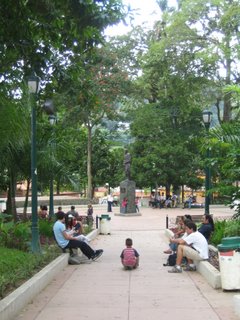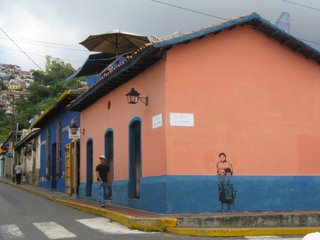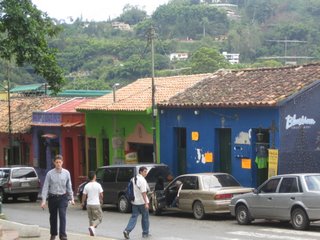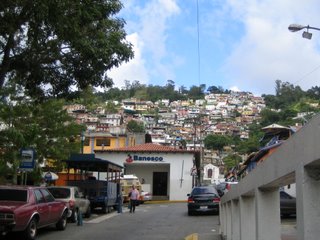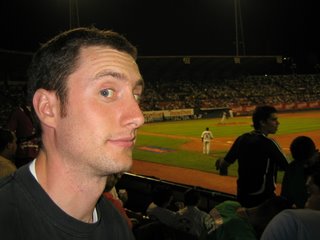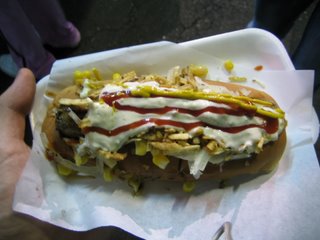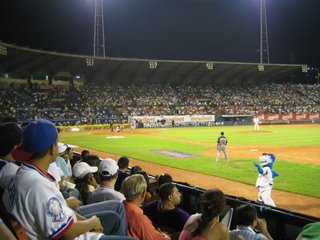The Issues: A Beginning
Before I get started on anything, I need to impart a few words of wisdom from a Venezuelan friend of mine who is working on Manuel Rosales' political campaign. He wrote me recently - En Venezuela, todo es posible - In Venezuela, anything is possible. More than any others I have encountered so far, these few words have helped me to frame the political situation here into something manageable.
Now, at the time, I know he was speaking in a political context but as I've learned quite quickly, now and when I was here on my exchange, this phrase can easily be applied in a variety of other scenarios. One particularly good example comes to mind.
Just the other week, I was getting off the Caracas metro in one of the plazas about to catch the bus home, pretty normal stuff. Across the street and just in front of me passed something I thought I would never see: a tow truck, towing another tow truck, which had broken down, still towing the car it had originally been towing. As this ménage à trois of vehicles drove by, I was stifling the urge to burst out laughing, only a massive grin and few chuckles made their way through. In that moment, I was definitely a foreigner. Everyone around me could have cared less.
So what... a tow truck, towing a tow truck, towing a car. The more I thought about it afterwards, and the more I added in a what my friend had said, the more it just made sense. Others who saw the tow truck parade might also have thought that it was just a little ridiculous and would have dismissed the thought in just the same instant. Why? Because in Venezuela, just about anything is possible, whether it's in the street or in the office. With that in mind, it's time to talk politics.
Where to begin is a thorny issue already; what is certain is that no one can discuss Venezuela without talking about oil as well. With the high price of oil in today's markets, Venezuela has enjoyed a prolonged period of petrol dollars that have heavily financed the activities of the Chavez government. More than any other industry, oil has given Venezuela political clout and economic mobility domestically and internationally.
The oil industry dominated by the monopoly Petróleos de Venezuela Sociedad Anónima or PDVSA was nationalized in the 1999 constitution introduced by Chavez. The organization has had a rocky history with the government since then, starting the massive general strike against the president in December, 2002. The subsequent response of the government was to fire the rebellious management and dismiss 18,000 PDVSA workers. Recently, PDVSA was declared throughout by Venezuela's oil minister to be rojo, rojito (red, rosy red), this being the colour of choice for Chavez and his supporters, indicating its allegiance to the Chavez government.
Chavez has been heavily criticized by the opposition for diverting funds from oil revenues to other countries in South America and offering a subsidized price of oil-for-doctors program with Cuba. Another interesting aspect of the international dimension of oil in Venezuela is the war of words the persists between Chavez and the United States over a variety of issues. The reality beyond the rhetorice in the short-term is that both of these countries really need each other. The US needs the oil that Venezuela produces as much Venezuela needs another customer to provide a steady flow of dollars into the country.
What must definitely be said of Chavez though is that he has not just wasted the wealth that oil has brought. Many public works have been initiated and finished from bridges to new metro stations, access to education and doctors, new homes for working class families, and other improvements that have given many Venezuelans visual proof that he is actually following through on his promises. This is probably one of the most interesting dilemmas that face the population. Many will agree that he has done some very good things and made people more aware of their political capital as a society.
However, his other actions and words have been simply too damaging and radical for many Venezuelans in terms of international relations with other countries, the centralization of power under the president, the mixing of executive, judicial, and legislative branches, the continued devaluation of the national currency, and on and on. Though Manuel Rosales and the opposition do seem to have a solid platform and plan for Venezuela, the election will likely come down to who will vote for Chavez and will vote against him. Anything is possible as they say here, so we'll have to wait and find out what happens.



